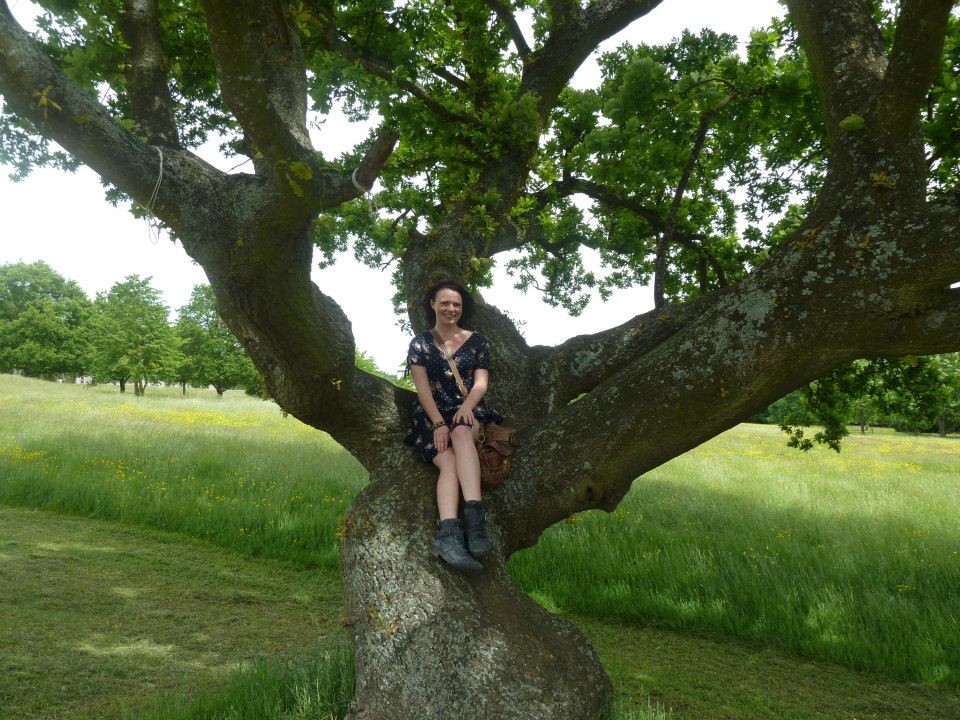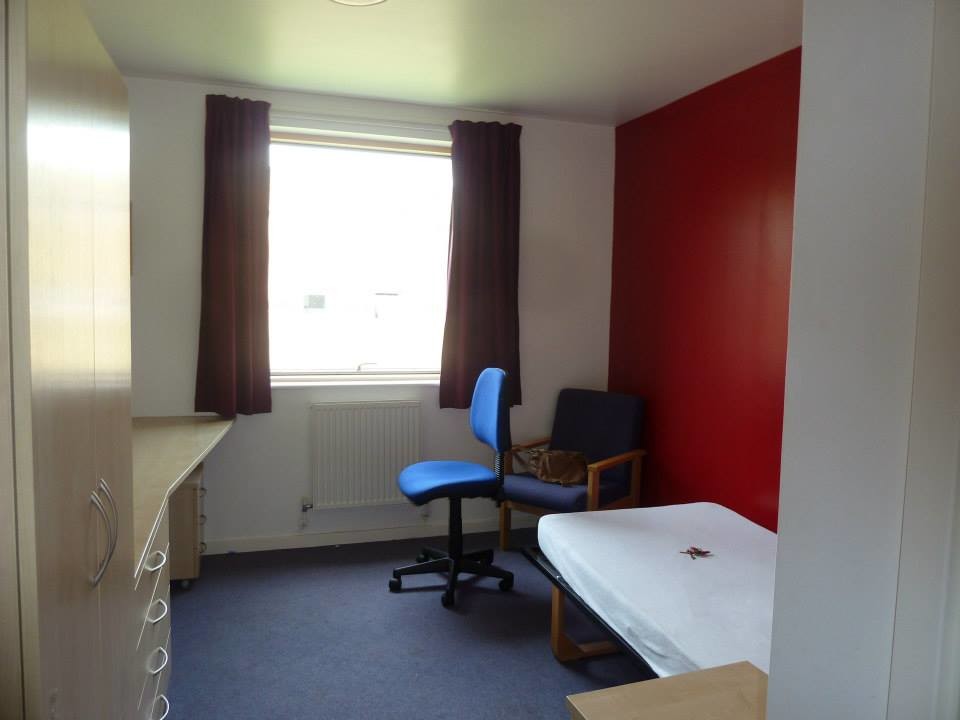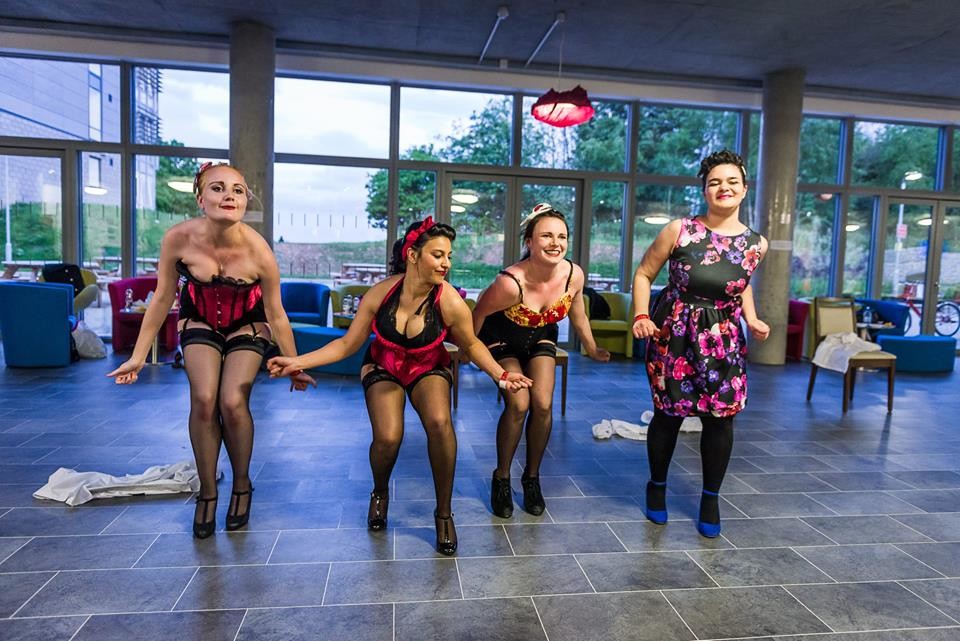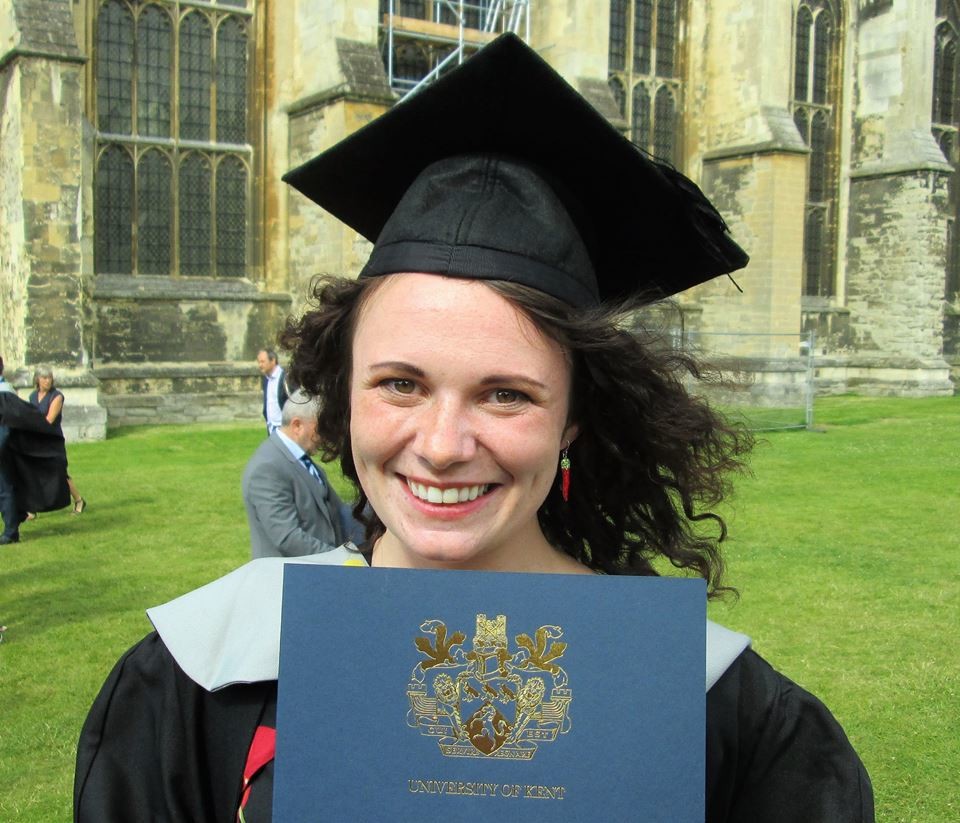University of Kent: my review
I studied my undergraduate degree at the University of Kent at Canterbury between 2012 and 2016. I was based in Canterbury for three out of those four years (spending my third year studying at the Pontificia Universidad Católica del Perú and the Universidad Autonoma de Barcelona) and in that time studied, worked as a student ambassador for my course, volunteered and participated in several societies. This means I have experienced almost every aspect of UKC, and have lived to tell the tale. Hopefully, this post will be useful to anyone thinking about studying here either as a home or international student, so please get comfortable as I lead you through my world at the University of Kent.

(There is a lot of greenery and wildlife at the Canterbury campus! )
Accommodation
As usual, the first thing I am going to cover is the accommodation. I spent a year living on campus, like most freshers (first year students), and two years living off-campus in student housing. There are several halls of residence on the Canterbury campus: Tyler Court, Woolf, Rutherford, Elliot, Keynes, Darwin, Parkwood and the newest one, Turing. You can find houses and flats which are catered, self-catered, en suite, shared bathrooms, single and double-bed rooms. Parkwood, for example, is like a village within itself, whilst Tyler Court is more akin to blocks of flats. I lived in Tyler Court B; it was self-catered flat with a large kitchen shared by eight students. That sounds like a lot, but because we all had different timetables, it wasn’t much of a squeeze at all – especially since all the rooms in Tyler Court A, B, and C are en suite. The bedroom itself was fairly spacious and contained a desk, single bed, wardrobe, mirror, shelves, desk chair and a bathroom with a toilet, sink and shower. The walls were quite thin between the rooms, but as long as your flatmates are reasonably courteous, that shouldn’t pose any real problem. The only real inconvenience was that there was next to no mobile phone signal inside the flat, but that is a common occurrence across the university campus – it does teach you not to be so reliant on your phone, though, so I guess that’s one bright side.

(My room in Tyler Court B - not pictured, but just to the right, was my bathroom)
After being accepted by the university, you can select an accommodation online. One thing I really appreciated about the accommodation-selection process was that before being assigned a room, the university sends you a quick questionnaire asking your tastes in music, your personality traits (outgoing, relaxed, quiet, studious, etc. ), your hobbies and a few similar questions; your answers help the university to put people together who have a better chance of getting along or at least maintaining a peaceful flat. It doesn’t necessarily always work, but I like the idea; I had nothing in common with my flatmates and rarely saw them except when cooking or making cups of tea in the kitchen. We didn’t dislike each other, but simply had no common interests. You will always have one problem flatmate – the one who never throws away or stores leftover food, who uses and ruins other people’s things, who might throw a big party without warning the other flatmates. The problem flatmate in my Tyler Court flat cooked for a platoon and only eat one portion, leaving the rest out to rot – she would also leave raw chicken (biohazard) and vegetables … she once left something out for so long, by the time the rest of us threw it away, we couldn’t tell if it was a bell pepper or a mushroom. Be prepared, breathe deeply, and if necessary, keep your wok/glasses/toastie-maker in your room except when you are using it.
With the exception of a few run-ins about the Problem Flatmate’s loud parties and poor kitchen etiquette, the flat did stay more or less conflict-free throughout the year, so in a way that was a success. At this point, I do feel the need to make the point that it is okay if you aren’t super-close friends with your flatmates; for me, the result was that I joined a lot of societies (one for nearly every day of the week) and made good friends there and on my course. It is important to remember that there are thousands of people from all walks of life at a university, not just the few people with whom you were thrown together at the beginning of first year.
Overall, my experience of living in the halls of residence was a positive one; the room was comfortable, there was sufficient fridge/shelf space and I developed and maintained a variety of hobbies outside of the flat.
After first year, I moved into a house on Hales Place estate, which is very popular with UKC students. The houses can vary with regard to quality, size and distance from the campus, but my five-bedroom student house on Godden Road was one of the better ones. The landlord was friendly, helpful and professional; there was a bathroom, a downstairs toilet and a paved garden, and it was a short walk away from two corner shops.
Living with friends is a learning curve, when you figure out what is more important to you day-to-day: having your friends around, or living in clean and tidy conditions. In the end, I have realised that I prefer a well-kept house. There were conflicts: one of my housemates was obsessively tidy (more so than myself), whilst another was a human hurricane with poor hygiene, a penchant for smoking dope and a tendency to take over every surface in the kitchen and living room. So, there were moments when tensions ran high, but also some really fun times: another of my flatmates and I bonded over gin and tonics, Indian food and film nights.
In my final year, I hit the jackpot. I lived on Whitstable Road in an old, tall house which had been converted into four two-person student flats. Each room was en suite again, and the kitchen was just shared with one postgrad student who loved a spotless kitchen. The flat was a fifteen-minute walk from the campus and fifteen minutes in the other direction from the town centre – perfection. Flat-hunting in Canterbury, you will find there is a Goldilocks effect: some may be too this, some may be too that, but then you will find one which is just right.
Registration
This will be a short section (unlike accommodation), because registering at UKC is relatively straightforward. You enrol online and an email address becomes active within two days of filling in the online form; you then choose your modules online, making sure to have sixty credits per term. Modules are either 15 credits (which you study for one term) or thirty credits (which you study over the whole year). This whole process is done via the website; the modules are submitted using the site’s SDS system, which can have long queues, but at least you can make yourself some lunch whilst you wait. On the day of registration, show up at the university with all the necessary documents (passport, visa if relevant, acceptance letter, etc. ) and go to the sports hall, where you will be formally registered and given your student card.
Studying
I did Hispanic Studies as my undergraduate degree, but was able to study classes from other subjects thanks to the wild module system at UKC. Wild modules mean that you can choose one or two classes per year from other subjects to study. In theory, you can study a module from any subject as long as the number of credits still works out right; however, since the grades still count, it is recommended that any wild module you choose isn’t too far removed from the topic or style in which you already study. For example, it may not be a great idea for a drama student with no science background to choose an astrophysics module; finding a literature module might garner more success at the end of the term. But there’s nothing really stopping you from picking something out there – it’s your grade.
My wild modules included a couple of French literature classes (such as Travels to Japan in Modern French Culture), comparative literature classes (e. g. Decadence in fin-de-siècle Europe), and even Religion and Sex from the Religious Studies department. I really enjoyed both my degree and the wild modules I was able to undertake. By and large, there was an emphasis on developing critical analysis skills and strengthening the ability to form and defend your own arguments based on the sources we were given and those we found independently. Looking at an issue or piece of literature from several angles is also something considered very important in my academic experience at the university, which allows one to understand other arguments which might be made, and use them to modify or actually strengthen your own interpretation.
I did find that from time to time that the department in which I studied (the School of European Culture and Languages) could become disorganised, largely due to a lack of communication between individual lecturers and between the lecturers and administrative staff. Different members of staff would be under different impressions about the same issue, and tell students different things, leading to a lot of confusion down the line. Fortunately, there is a student course representative who can go to the department to air the students’ questions and concerns, but I would say that it is important not to be complacent – if there is a problem, contradiction or lack of clarity, make sure the lecturers and staff know about it. Otherwise, it becomes the students and not the employees who deal with the consequences of a lack of communication.
I can’t speak for every degree, but mine offered a wide variety of modules. The only obligatory classes were Spanish language, Introduction to Hispanic Culture in the first term, and a secondary Hispanic language from the second year onwards (the choices at the time were Catalan or Brazilian Portuguese). Outside of that, there were modules which focused on politics and state, theatre, arts, literature, poetry and cinema. Other classes were thematic, such as Reading Monstrosity in Iberian Culture; this looked at the theme of monstrosity in literature, society, cinema and art. It was possible for two people to do the same degree and never have a class together: depending on our tastes, some of my classmates’ degrees turned out to focus more on history and politics, while my class choices leaned towards literature and culture.
Working
I worked at the University as a student ambassador in my final year. This mostly entailed attending open days and events for students who were considering UKC as one of their options, and talking to these students and their families about my degree. The job itself was actually really enjoyable – as you can probably tell, I like to talk and am enthusiastic about my studies. It was also really interesting to listen to the different reasons why people wanted to study the course, and which combinations of courses they were thinking of doing (Hispanic Studies and French was popular, as was Business with Spanish).
The pay was surprisingly decent, and most open days were six hours long. The department always paid on time into my account, which as a student I appreciated a lot. There weren’t loads of open days, but enough to earn some money to go out in the evening or buy some nice treats on the weekly food shop.
There are other positions available for students who want to work part time whilst they study, including food service and bartenders in the campus restaurants, cleaners, cashiers at Essentials (the university’s shop) or IT assistants at Templeman Library.
Hobbies
Now we’re talking. The University of Kent has a huge array of societies and sports teams, ranging from circus skills to craft beer enthusiasts, rugby to ballroom dancing, the Francophone society to the psychedelic society. In my first year, I attended the Hispanic Society, Pole Fitness, Salsa, Kent Dance and Creative Writing. Some stuck really well, whilst a couple fell by the wayside: many Kent Dance members at the time reminded me of the girls who went to my high school, so that didn’t last long; Pole Fitness was very popular, but I found it far too crowded in comparison to my small Pole class back home. Salsa clicked instantly – I was still an enthusiastic member in my final year, and intend to be during my MA. There were two classes per week plus one bonus workshop of another Latin dance, such as bachata, Cuban salsa or Rueda. Another dance society I became part of more recently was belly dancing. That society was also great fun – friendly, upbeat and with the opportunity to participate in several performances throughout the year.

(Dancing burlesque at the Kent Salsa Festival 2016 - credit for the photo goes to a long-time member of the society by the name of Chris Henry)
I didn’t stick with Creative Writing past first year, but found out that the Publishing Society was fun. In PubSoc (the publishing society), members contribute material such as poetry, short stories, art and photographs, which are then read, analysed and edited during weekly editorials. The contributor does not need to take any criticisms on board; they have the choice to maintain the original piece or make any or all of the editions and resubmit it before the final deadline. After the final deadline, the members decide as a group which pieces to put into the magazine Figment, which is published per term. After deciding on content, the design process begins, and then it is launched at an event near the end of term. I like the society because you do rather feel like you have achieved something tangible at the end of it.
The gym has a lot of modern facilities and a long list of fun classes to try. My favourites are Body Pump, Yoga, Zumba and Booiaka. There is one teacher called Jenni who normally takes the latter two classes, and she is amazing - bright pink hair, bright clothes, and a fantastically enthusiastic personalty which spurs you on during her entertaining, high-energy dance-based classes. Give it a go!
The joy of the sports teams and societies available at Canterbury is that there will almost certainly be one to suit anyone’s taste, and they are great places to meet people with similar interests.
Conclusion
The University of Kent is one I consider home. It isn’t perfect, the disorganisation I came across from time to time could be deeply frustrating. But it is a comfortable, vibrant atmosphere filled with so many different things to do and people to meet. The lecturers, at least in my department, are passionate about their subjects, and that passion inspires you to care too. Going to the University of Kent at Canterbury, for all its little foibles and eccentricities, was one of the best decisions I have ever made, and I really loved my degree there. Bring on the next year!

Photo gallery
Content available in other languages
- Español: Mi reseña de la Universidad de Kent
- Português: Universidade de Kent: a minha análise
- Français: Mon avis sur l'université du Kent
- Italiano: Università del Kent: la mia opinione
- Polski: Uniwersytet Kent: moja opinia
Want to have your own Erasmus blog?
If you are experiencing living abroad, you're an avid traveller or want to promote the city where you live... create your own blog and share your adventures!
I want to create my Erasmus blog! →



















Comments (0 comments)